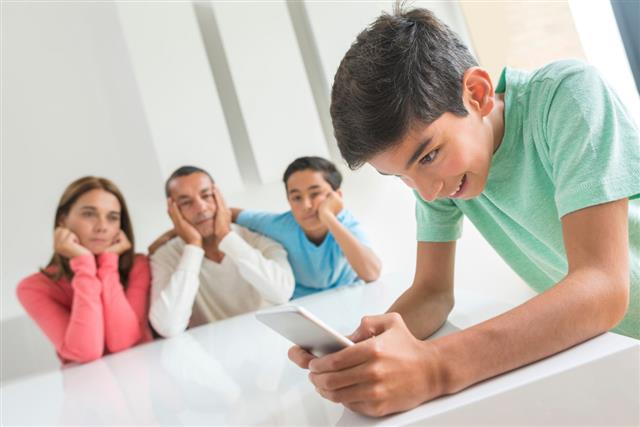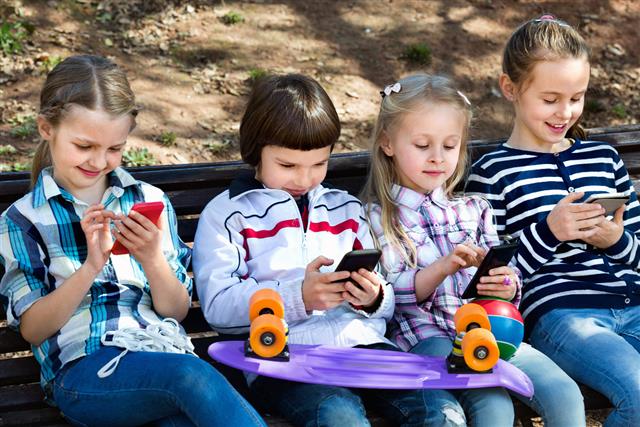
Kids wielding mobiles in school, is it a bad idea or is it an absolute necessity? Here is a closer look at the pros and cons of using cell phones in school.
When I was in school, I didn’t have a cell phone. Neither did I have one in my high school. I got one when I was in the last year of college. Too late? That I wouldn’t know. You see, there was no other way then. Now when I do have my cell phone, I can’t really think of life without it. It seems to have become a sickeningly important part of my life.
And when I look around today, I find that students as young as 10 are carrying cell phones to school. Which leads to the question – is that really necessary, or is it an extravagance? The following article will deal with the issue of using cell phones in school and their pros and cons.
Pros and cons of cell phones in school – This topic is a hot spot for debate, if you ask me. Should students have cell phones in school is a difficult question to answer, because of the sentimental values attached and societal constraints raised.
I don’t look to provide any answers, because the final authority rests with the school board and parents. All I will do is raise some issues in both these regards and hope to show you both the sides of the coin.
Why Cell Phones Should be Allowed in Schools
There is no doubt that a cell phone allows for the advantage of being able to contact a person directly during an emergency or otherwise. Knowing that a child has a mobile phone puts the parents at ease because they can call them in case of any change in daily plans, emergency instructions, and the like. Similarly, the students can also be in touch with their parents if need be.
Not only will the children be in touch with the parents for regular instructions like a pick up point or change in time etc., but more importantly, they can also feed in emergency numbers like 911, of hospitals, relatives, and others. This will provide a security for both, the child and the parents.
In case a child has not been provided with a phone and the parents need to contact their child immediately, then they would be forced to go to the school office. As a result, precious time could be lost or the phone line at the school office could be jammed. To add to that, the school office has to make arrangements to send someone to the child in question and convey the message or call him to the office to receive the call – a long drawn process.
Academic Help
Probably the most important usage of having a cell phone in school is that it can be used as a tool to aid in academics. A cell phone comes with several accessories like calculators, cameras, the Internet, etc. These applications can be made use for academic purposes.
If a student needs to leave for the next class and does not have the time to jot down the notes on the board, then he can just photograph the board and have access to the information. Or he can use the calendar application on the cell and jot down the date of the upcoming tests.
It’s not only the students who are aided due to cell phones, but it benefits the teachers just as much. There are several websites which can be used for academics. If the teachers accommodate the same in their lessons, it could prove to be an advantage for both. It has also been seen that students who are allowed access to their phones, understand concepts much more thoroughly and easily and therefore learn better.
Disadvantages of Permitting Cell Phones at School
Many academics believe that there should be a ban on usage of cell phones in school. They say that the disadvantages of carrying a cell phone far outweigh the advantages.
Along with the many applications available on a cell phone, an important one is that of texting. There is no guarantee that a student will not text during class hours. Which, along with posing as a distraction, also diverts their concentration from studies and thereby the overall learning process.
Not only does the factor of distraction come into the picture in relation to students, but also in relation to teachers and the classroom in general. For example, when the phone starts ringing in class (or even if is on ‘vibration mode’), the teacher might lose his/her link of teaching and that will prove to be a major disadvantage for the entire class.
Not to mention that it is extremely disrespectful for the teacher who is conducting the class.
Instead of using the cell phone for academics and emergencies, some students might make unlawful use of its features – like that of the camera, and therefore bringing the issue of school safety into the picture.
They might click snaps that are not right, or record videos that are questionable in nature or call the school and report a bomb threat as a prank or to cancel classes. They may also use the phone for other illegal activities like drug deals, thefts and the like. Also, if the phone is used extensively, it could lead to an extravagant bill.
Having the Internet on the phone provides an opportunity to cheat. Students can refer to the Internet for answers during a test, or they could text an accomplice for the answers. They could also photograph information from a textbook and use that to cheat in the test. Neither of these helps students, instead it discourages them from working hard.
Sometimes, only the rich kids have cell phones. This can lead to a lot of social problems like jealousy, thefts, ragging, and ridicule. This makes the adjustment process in school rather difficult.
The pros and cons of carrying cell phones to school are many, and each of these comes with its own set of valid points. That is why, making a final choice becomes difficult. The way to deal with this problem is to have a proper discussion carried forth with the school authorities and the parents and an appropriate policy be drawn out thus. The main point being – is the cell phone leading to any education or is it a mere distraction?













